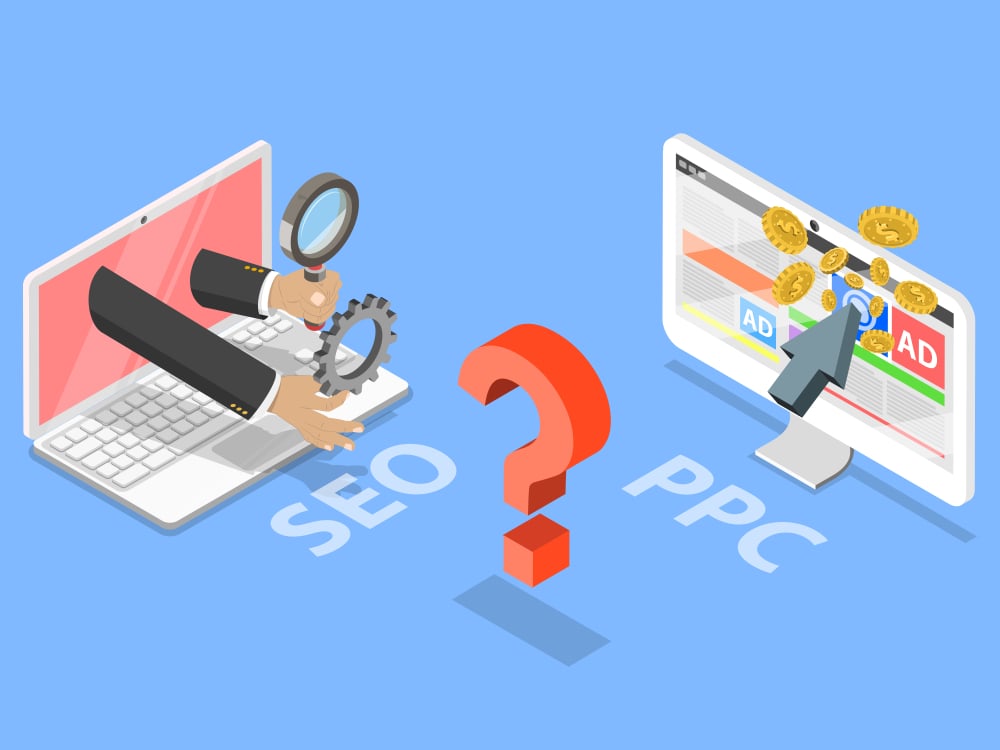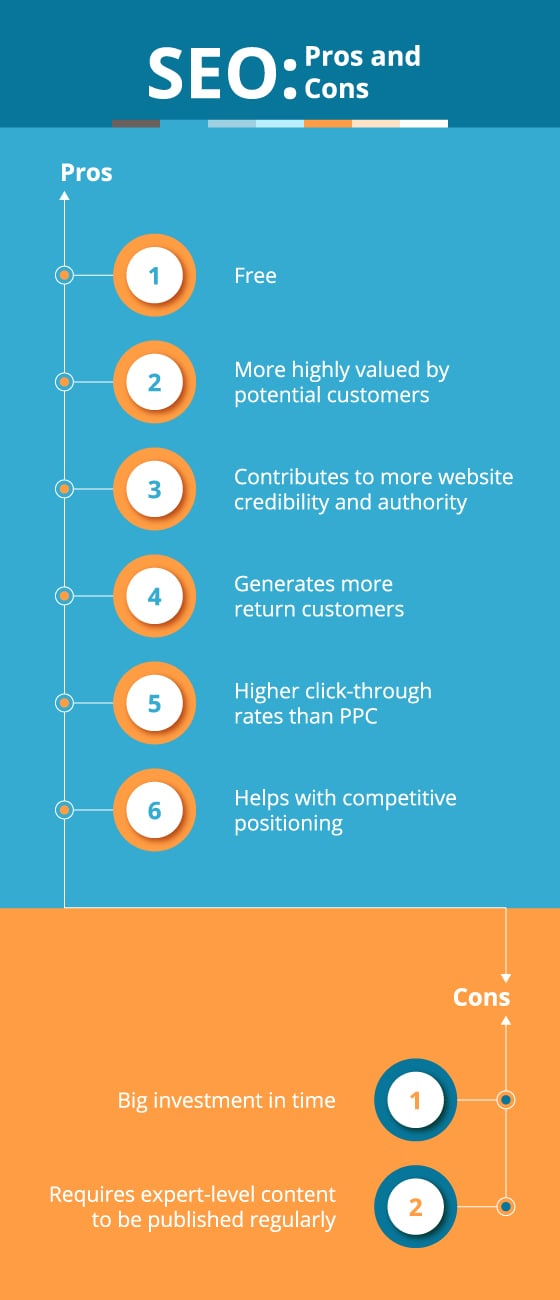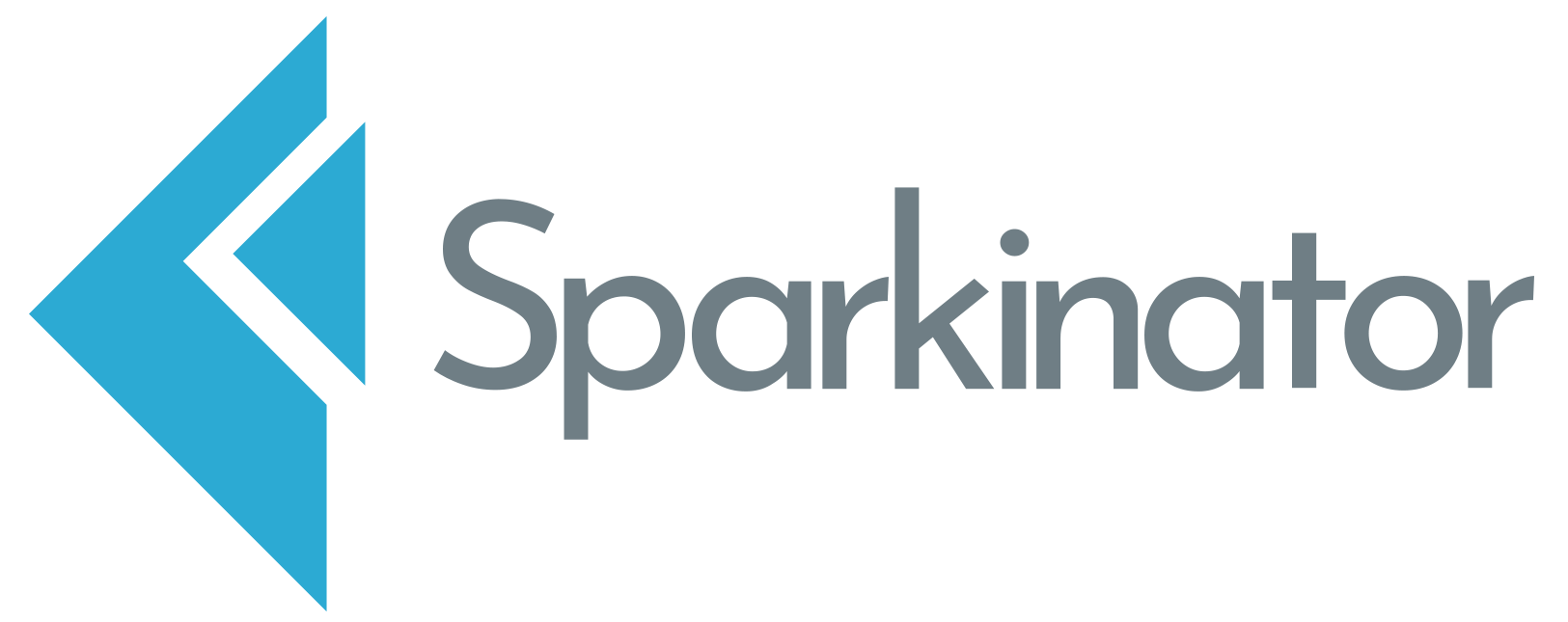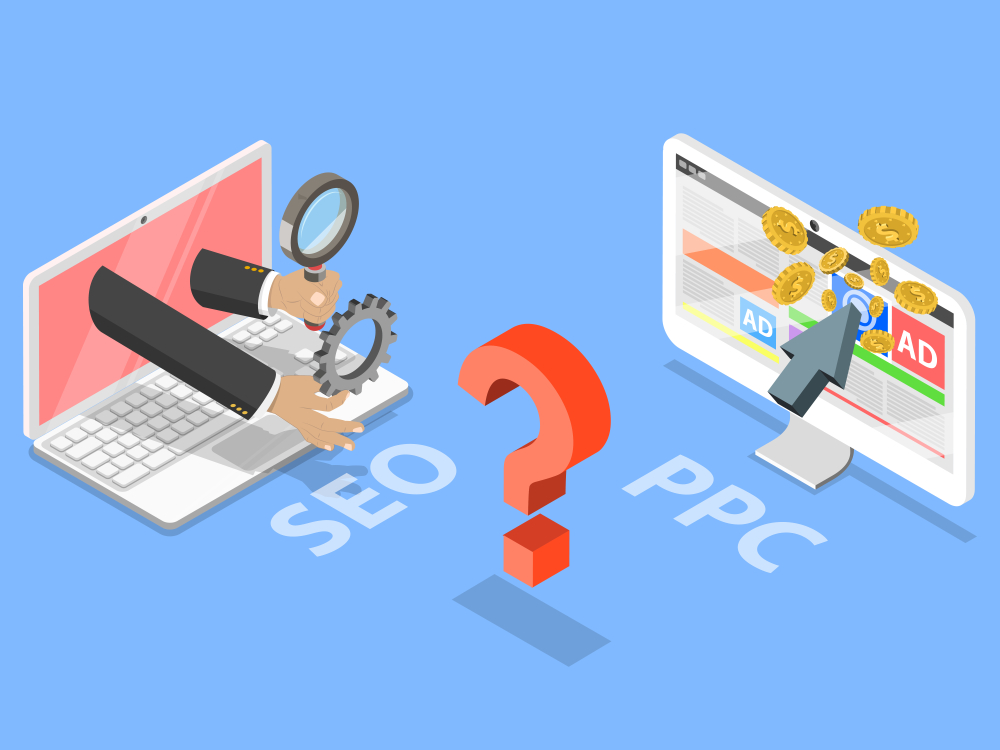
Digital marketing can seem like a virtual free-for-all with all of the competition you need to cut through just to get your content seen and your brand recognized. Should you invest in the organic Search Engine Optimization (SEO) marketing, or go for the paid Google Ads and other pay-per-click (PPC) advertisements?
It’s not a simple answer, but don’t fret; we'll walk through the pros and cons of each marketing strategy.
SEO and Google
SEO is necessary for creeping up Google’s search rankings. If you want to reach the first page of Google search results, you need to step up your SEO efforts regardless of what you do with pay-per-click marketing.
Google has a complex ranking system for websites but, essentially, your ranking is determined by how “trusted” your site is. This is based on factors like how much traffic your site receives, how often your content is shared, and how many other websites refer to your content. Your ranking is also partially determined by how well Google can “read” your content, which takes into account things like keywords you’re using and many technical, behind-the-scenes factors. Effective content marketing will earn you a significant return on your work but takes time to build.
PPC Advertising
Pay-per-click advertising is exactly what it sounds like: you pay for every click your ads receive. Where SEO can be considered earned attention, PPC is paid for. You can make separate, hyper-focused ads to cover everything you want to market but, at its core, it’s still an advertisement. There are services in which you only pay for ads that gain impressions, like Google Ads, so it doesn’t need to be as pricey as it sounds.
Advantages of SEO
SEO is the cornerstone of Google search and if you want to increase your rankings, you need to successfully implement SEO on your business’s website. Again, SEO is organic which means these results can’t be bought. Good for your wallet but potentially bad for your brand if you can’t nail your content. Some advantages of SEO marketing include:
- It’s free! There’s a continuous return on your investment: rankings earned through good SEO don’t disappear when you’ve stopped paying as is the case with paid Google Ads.
- Your reputation is earned, not paid for. Earned media versus paid media has been shown to be more valuable to customers.
- You become a trusted member of the internet. Intelligently using SEO will help you build credibility and trust. You can become an authority website, a go-to for anyone who’s in your market. At that point, you’ll be able to continuously generate traffic for yourself without having to do any heavy lifting -- all based on reputation alone. The only way to get to this point is through solid content marketing, SEO strategizing and patience.
- While it is a serious time commitment, SEO can also yield big returns. Ranking high in organic search results eventually generates more return customers.
- Much higher click-through rates than PPC. More people click on the top item of organic search results than will click on an ad.
- Leads to world domination (kind of): Once you’ve established yourself as the top of organic search, your competition won’t be able to just buy their way in and outrank you.
Disadvantages of SEO
Building up your website through SEO has a lot of good long-term positives, but there are some drawbacks.
- Time is money. SEO is a long-term strategy -- creating and executing a successful SEO strategy takes time. While there’s no direct charge to your credit card, it’s highly unlikely you’ll build up a strong website domain authority overnight and your business may not have that kind of time.
- SEO is no joke. Being successful requires pumping out real content on a regular basis. This is the part where “free” SEO can become costly. You can’t just rely on highly valuable SEO keywords and wait for people to discover you. People like to learn from authorities, experts, and celebrities. If you’re already one of those things, great! Producing your own content should be easy. But maybe you need time to build yourself up as an expert. If that’s the case, you might consider hiring the experts to write your content for you.

Advantages of PPC
SEO is an extremely worthwhile investment of your time and resources, so why should you bother with PPC advertising? For starters, PPC advertising can get you some pretty significant gains, often much faster than SEO:
- It’s instant gratification! Depending on how much you’re willing to spend on an ad, you’ll see immediate results. (However, PPC is not necessarily a good long-term strategy, especially if you don’t have a big budget.)
- In PPC advertising, your messaging can be more targeted to your specific audience(s). You can choose who sees your ad and when. In Google Ads, you can further this messaging by controlling costs with an ad group. These groups consist of one or more ads that share similar goals. You set a price that you are willing to pay, which will be used when certain keywords you’ve chosen trigger your specific ad to appear (a cost-per-click bid).
- You can quickly put out a new ad whenever you have something new to say vs. writing a whole new blog or going back and updating older content like you’d need to do for SEO.
- PPC can potentially help your SEO. By paying for ads initially, you’ll be able to get your brand name out there at the top of search results while you focus on optimizing your existing content and creating new content.
Disadvantages of PPC
Perhaps the most significant concern associated with PPC ads is that you need to have a solid budget to be successful. Though you’ll have an initial boost in traffic to your website, that may not translate into visitors spending a lot of time there.
- Considering paid clicks on your ad is also considered a cheap way to generate leads and new client acquisitions, it’s worth mentioning. Even cheap campaigns can add up if they last too long with too few results. It’s entirely possible to make lousy ad content choices, or target too broad a market.
- People know they are looking at an ad, which makes them more likely to scroll past it.
- It’s more of a short-term solution. While you may be getting plenty of people to your landing page thanks to your ads, you still need good content to keep them there. Give the people what they want: some valuable reading material (achieved with SEO)!
So Which Is Best For You?
The type of strategy you choose really boils down to your specific business needs. Ask yourself a few questions:
- How old is your business?
- What industry are you in?
- Do you already have a catalog of strong, original content?
- Are your needs more short-term or long-term?
A new e-commerce business that’s competing with the whole world wide web will need to start making sales now and is unlikely to build the necessary SEO juice to outrank a juggernaut like Amazon any time soon. Someone whose focus is less global and more local can probably get by with a few cheap PPC campaigns while working to build SEO that will rank high on local searches. PPC advertising may get eyes on you faster, but without the thoughtful content behind an SEO strategy, they won’t stay long -- or turn into returning customers.
Final Thoughts
Consider what your marketing needs are right now. While good SEO will be necessary for long-term growth, a PPC campaign can get you off the ground faster. Ideally, you would build your marketing campaign using both methods, supplementing your original content with paid ads to get your brand recognized and start establishing a reputation.
If you’re already using Google Ads but not getting the results you want, schedule your free ads review with Sparkinator. We’ll take a look at what you’ve got and make recommendations so you can start leveraging those marketing dollars more effectively.





.png?width=1625&name=logo%20(1).png)